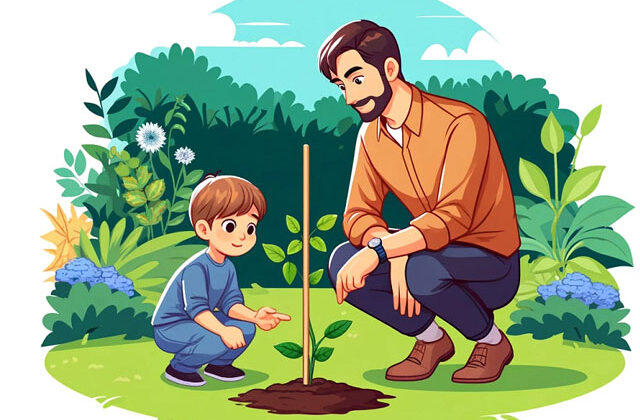Mary Pouline, Author and Founder, Sapience Publications

From Authority to Empathy
Hello, dear readers!
I am Mary Pouline, back again with my monthly parental insights. In this article, I wish to explore the two cornerstones of parenting styles. Parenting is an ever-evolving practice, shaped by cultural, societal, and technological changes. What was considered “normal” or “correct” parenting in one era may be viewed very differently in another. Here, I would like to highlight the differences between traditional parenting and modern parenting. Let us examine the implications of each approach, as well as the advantages and challenges associated with them.
The Roots of Traditional Parenting
Traditional parenting emphasizes discipline, respect, and authority. Parents are the unquestioned figures of authority in the household, and obedience is considered one of the highest virtues a child could possess. Children are expected to follow rules without protest, and any deviation from this is met with stern consequences.
In this model, discipline is not negotiable. Punishment, sometimes even physical, is common. The belief is that children need strict guidance to learnright from wrong, and the use of corporal punishment is often seen as a necessary tool to maintain order. This style of parenting is based on the idea that if children are not held to rigid standards, they would grow up spoiled or undisciplined. Affection is often reserved for special moments, while everyday focus remains on teaching respect and duty.
Children raised in this environment tend to be outwardly respectful, hardworking, and aware of the consequences of their actions. However, the cost of such strict methods could be emotional distance between parents and children, and deeper issues regarding response to authority or control.
The Shift to Modern Parenting
Until a generation or so ago, traditional parenting was considered the norm. Fast forward to today, and parenting has undergone a significant transformation. The focus has shifted away from strict authority and toward a more nurturing, communicative approach. Modern parents are more likely to encourage open dialogue, self-expression, and autonomy in their children. The traditional idea that children should “be seen and not heard” has largely given way to an understanding that children need to be heard in order for them to thrive.
Rather than relying on physical punishment or rigid rules, modern parents prefer to engage in discussions about behavior and its consequences. They strive to create an environment where children feel safe expressing their feelings and opinions. The modern mantra has become “lead by example” instead of “do as I say, not as I do.”
One of the core principles of modern parenting is emotional support. Parents today are more likely to offer guidance through empathy rather than fear. In contrast to the traditional model, where children were expected to conform to set standards without questioning, modern parenting encourages children to explore their own individuality while still maintaining respect for boundaries.
Key Differences between Traditional and Modern Parenting
1. Disciplinary Methods:
“The Rod or the Conversation?”
A hallmark of traditional parenting is the use of punishment to instill discipline. The saying “Spare the rod, spoil the child” captures this mindset perfectly. Parents believe that physical punishment, like spanking or other forms of corporal discipline, is essential to teaching children obedience.
In modern parenting, however, there’s a strong belief in discipline without violence. Rather than resorting to punishment, modern parents tend to focus on non-violent forms of discipline, like time-outs, logical consequences, or the withdrawal of privileges. The emphasis is on helping children understand the impact of their actions, rather than simply imposing a consequence.
2. Parent-Child Relationships:
“The Silent Authority vs.
the Open Dialogue”
In traditional parenting, relationships between parents and children tends to be distant. Parents are the authority figures, and their word is final. The relationship sometimes borders on transactional—parents provided for their children, and children obeyed in return.
Modern parenting, however, prioritizes emotional connection and open dialogue. Parents today are more likely to engage with their children on a personal level, discussing feelings, challenges, and even the reasoning behind rules.
…Contd in Aalumai Sirpi Magazine






